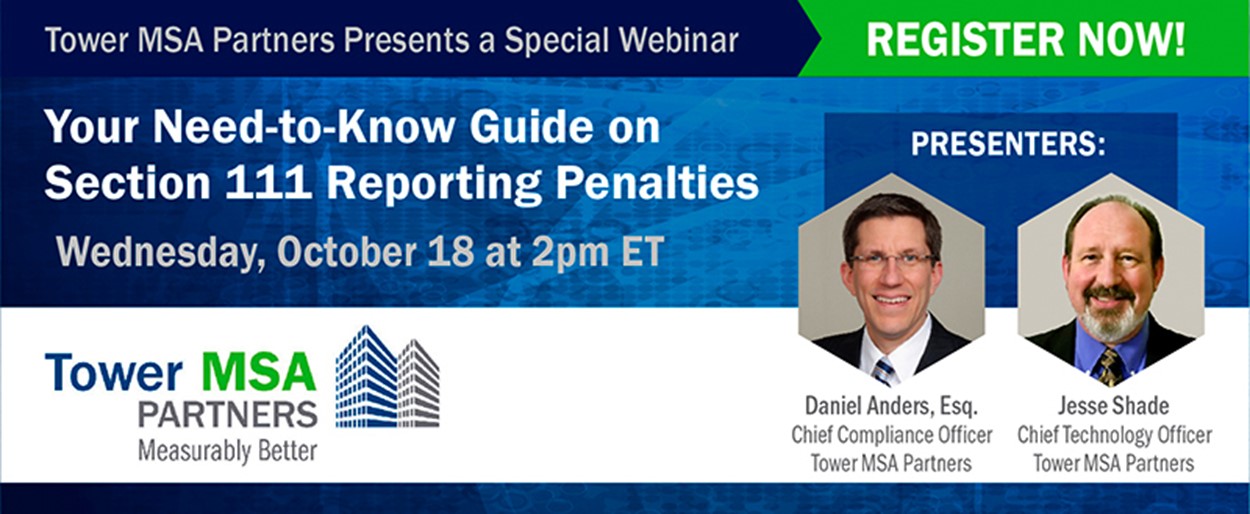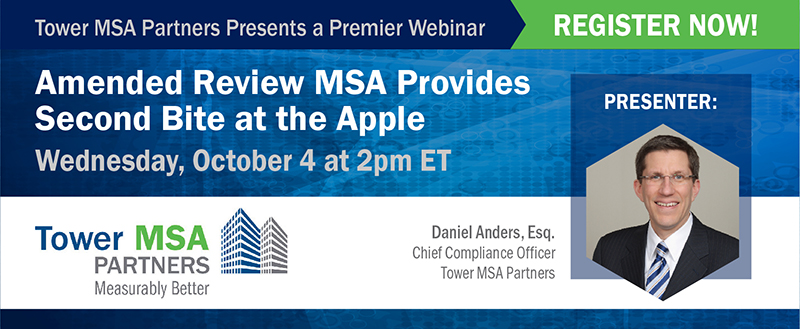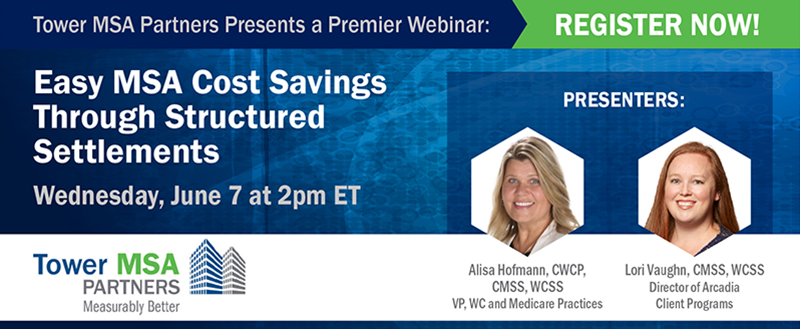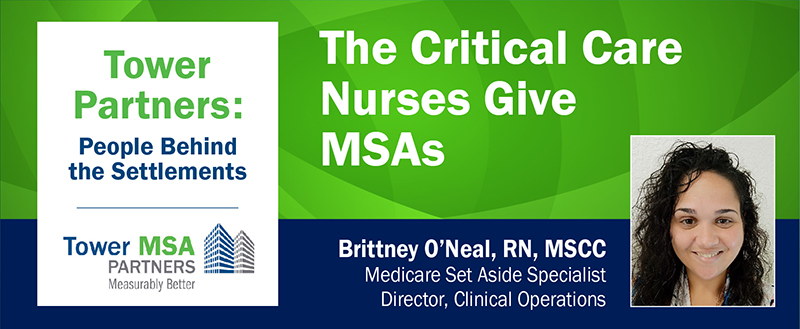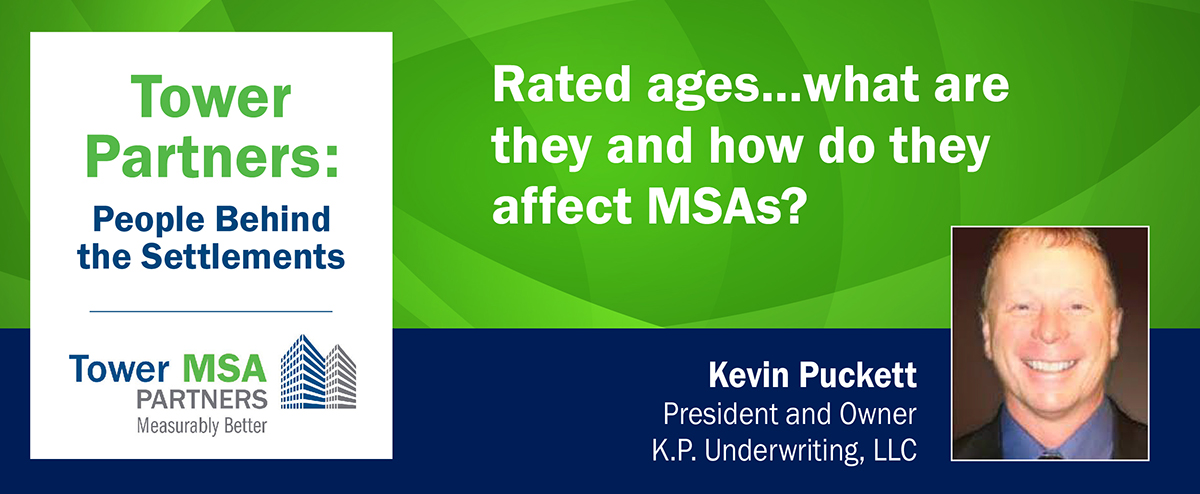Tower MSA Partners’ Chief Compliance Officer Dan Anders’ enthusiasm for Amended Reviews kept the audience engaged during our recent Premier Webinar: Amended Review MSA Provides Second Bite at the Apple.
Several criteria dictate whether payers can submit an Amended Review, including the fact CMS needed to have approved the first MSA more than 12 months earlier. In addition, there must be a $10,000 or 10% (whichever is higher) difference between the first MSA allocation and the Amended Review MSA.
Our earlier post discussed CMS’s decision to remove the lookback period for Amended Reviews. Previously, we could only use this process if the original MSA had been approved during the last six years. The removal of the lookback period opened the door for insurers and employers to examine their unsettled legacy claims that had any approved MSA and try to settle the claims.
Dan cautioned attendees not to submit an Amended Review MSA unless the injured worker seemed open to settlement. “CMS’s change gave payers a second bite at the apple,” Dan said, “But it’s just one more bite, only one opportunity to obtain a new MSA. You don’t get to eat the whole apple.”
The webinar shared facts and advice about Amended Reviews and highlighted several real case studies, including one where the second MSA amount was much higher than the first. Some takeaways:
- Request an MSA report to decide if an Amended Review MSA submission makes sense.
- An Amended Review is not available until 12 months after CMS approved the first MSAA.
- There’s no requirement to submit an Amended Review MSA for settlement purposes even if the CMS-approved MSA does not reflect current or future course of care.
- Make sure all parties are at a stage where settlement is feasible.
- Obtain medical documentation to support all medical and medication changes from the original MSA.
- Unlike a regular MSA submission, where CMS requests more information and we can supplement and support the proposal in our response, the Amended Review MSA process offers no opportunity to provide documentation after submission. CMS will review what is provided and make its determination.
Attendees asked great questions:
- Must the vendor who submitted the original MSA also submit the Amended Review MSA?
No. Tower can handle the Amended Review MSA even if a different vendor handled the original submission.
- If an MSA was previously submitted for a Re-review, can it be submitted for an Amended Review MSA?
Yes.
- Does the undertaking of an Amended Review make the previously submitted MSA null and void?
Only if the Amended Review MSA is submitted and approved. The beauty of CMS-approved MSAs is that they never die. If you can get the injured person and their attorney to agree, you can use it to settle, regardless of how outdated it is.
Like just about everything else CMS touches, the Amended Review process is complicated, and you can easily blow your one and only chance. Do not try this at home.
Dan is always happy to discuss cases and explore Amended Review and other options with you. Don’t hesitate to email him at Daniel.Anders@TowerMSA.com.
Remember, Tower can create MSA reports to help you decide if you want to pursue an Amended Review MSA. In addition, we’ll review your open claims with high CMS-approved MSAs and select those that could settle with an Amended Review MSA. We can also provide clinical recommendations to determine whether a physician statement, additional medical records or other intervention can result in a lower MSA.
Tower MSA Partners. Don’t Settle with Anyone Else.

